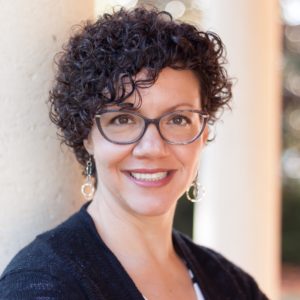Carl plopped down in the chair across from me. “I’m so glad we have an appointment today! I had the worst day at work! And, on top of that, one of my best friends landed in jail last night after a problem with his horrible wife. She’s psychotic!” Carl proceeds to give me the details of his friend’s situation before I can get a word in. I attempt to direct the conversation to how he is coping with the stress by suggesting ways he can separate himself from his friend’s drama and find his own zen moments in the chaos.
Carl doesn’t know that his friend’s wife is a personal friend and of mine.
He doesn’t know the years of stories I’ve heard (as a friend) over the years that have negatively colored my view of her husband. I continue to proceed with as much neutrality and compassion as possible and try not to indicate that I have any personal knowledge of the situation.
Carl leaves the session after unloading and says, “I feel so much better than when I got here an hour ago. You’re a lifesaver!” I dutifully write my progress notes for the day, collect my fees and go home. But his words about my friend swirl in my head, trying to find a place to land. Most of the information I learn in counseling sessions can never leave me. I lock it away in “the vault,” hoping it stays rightly labeled as “confidential.” The vault comes naturally to me, but not easily. Maintaining a secure vault of emotional-laden information takes an especially large tole on the psyche of a small town therapist.
My Town
I live and practice counseling in a small town of 24,000 people. After moving here 7 years ago from Boston, MA, I adjusted slowly to rural life. I shop here, send my kids to school, eat at local restaurants, use the public library, and attend a church. I have learned that there is never more than one degree of separation between my clients and me. This was never a problem in the big city, where I could count on the number of people to keep me properly hidden and reasonably safe from too many personal connections.
These are some of the ways that I cope with the inevitable overlap of my life with my client’s lives:
- Prepare for client run-ins by talking about it ahead of time. I ask “How would you like for me to interact with you when I see you in town?” To keep it light, I also warn them about how, when they see me around town, they will notice my inevitable sweat pants, lack of make-up, and misbehaving kids.
- Take vacations far away and protect vacation time for rest and fun.
- Share about known connections only when it is ethically necessary to disclose something for the patient’s benefit. For example, if one of my husband’s college students seeks me out for counseling, I disclose that I am his wife and I will not be sharing any of the student’s personal information with him, nor will he know that I am seeing the student.
- Keep personal social media use minimal and relatively neutral. Unfriend or hide anyone who is too closely associated with your clients to avoid seeing your clients’ worlds outside of session. And please avoid rants on any social media platform! In a small town, social media is one of the fastest ways to make a fool of yourself.
- Be very careful with alcohol consumption in public, since alcohol use can affect your inhibitions and remove needed verbal filters. As adult professionals, most of us probably feel we don’t need to be lectured about our alcohol consumption in public. Yet: I know of situations where this sort of thing became a major problem for people.
- Make your home your sanctuary and keep work time for work. Home is the only place you can guarantee you won’t be seeing your clients. Keep your phone and computer out of your bedroom and protect your personal time from client interactions by utilizing office hours and your office space. When you are at work, make the most of your time by optimizing your schedule.
Having said all of this, one might think working as a therapist in a small town is too difficult, or even impossible. However, my experience tells me that small town counseling offers numerous benefits for a growing practice (which I’ll be writing about in the future!). Perhaps, in the end, the professional standards and tactics used in a small town are not so different from what we all would use in any setting, urban or rural, small-town or massive city. But the small town comes with unique challenges, and the story I tell above about Carl is one of many others just like it that I encounter on nearly a weekly basis.
What about you? How do you manage confidentiality within tight-knit communities where people all…know each other?
 Susan M. Doak is a licensed professional counselor and the owner of Newberg Counseling & Wellness, a private practice in beautiful Newberg, Oregon. Her practice provides experienced support for people in seasons of change, teens and parents. When she is not with clients, she enjoys dancing with her kids, hiking, gardening and making pies.
Susan M. Doak is a licensed professional counselor and the owner of Newberg Counseling & Wellness, a private practice in beautiful Newberg, Oregon. Her practice provides experienced support for people in seasons of change, teens and parents. When she is not with clients, she enjoys dancing with her kids, hiking, gardening and making pies.

